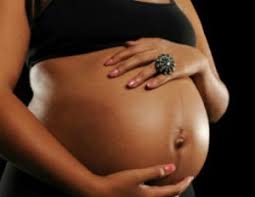A woman dies every two minutes as a result of complications during pregnancy or childbirth . This is the main conclusion drawn from the UN report “Trends in maternal mortality”. This work has tracked maternal deaths at the national, regional and global levels between 2000 and 2020, the year in which an estimated 287,000 maternal deaths worldwide. This figure represents a slight decrease compared to the 309,000 deaths registered in 2016 after the entry into force of the Sustainable Development Goals (SDGs) set for 2030.
While it is true that the report presents some significant advances in terms of reducing maternal mortality between 2000 and 2015, since then progress has stalled and, in some cases, even been reversed. Undoubtedly, the pandemic caused by Covid-19 has influenced the setbacks, but since the period evaluated ends in 2020, additional studies are required to determine the true impacts.
Delving into the results of the research, we see that in Europe and North America the maternal mortality rate increased by 17% between 2016 and 2020, while in Latin America and the Caribbean it increased by 15% in the same period. . In other regions of the world the maternal mortality rate has stagnated. Despite the worrying results, the authors state that progress is possible. In this sense, they focus on the regions of Australia and New Zealand and Central and South Asia that have experienced decreases in the maternal mortality rate of 36 and 16% , respectively. In total, 31 countries have managed to record declines in this indicator.

«While pregnancy should be a time of immense hope and a positive experience for all women, tragically it remains a shockingly dangerous experience for millions of people around the world who lack access to high-quality, respectful healthcare.» The director general of the World Health Organization (WHO), Tedros Adhanom Ghebreyesus , exposes through a statement . “These new statistics reveal the urgent need to ensure that all women and girls have access to critical health services before, during and after childbirth and that they can fully exercise their reproductive rights .”
Although setbacks have been experienced globally, in total numbers maternal deaths continue to be concentrated to a large extent in the poorest countries and those nations affected by armed conflicts. In 2020 around 70% of all maternal deaths were recorded in sub-Saharan Africa . Worryingly, in nine countries currently facing serious humanitarian crises, maternal mortality rates were more than double the world average: 551 deaths per 100,000 live births, compared to 223 globally.
MOST DEATHS ARE PREVENTABLE
If we analyze the main causes of maternal death, we see that the majority are preventable and treatable, guaranteeing access to medical care. These include severe bleeding, high blood pressure, pregnancy-related infections, complications from unsafe abortion, and underlying conditions that may be aggravated by pregnancy, such as HIV or malaria, for example.
The report highlights that Community-Centered Primary Care must meet the needs of women, children, and adolescents and allow equitable access to critical services such as assisted deliveries, prenatal and postnatal care, childhood immunizations, nutrition, and family planning. However, there are major barriers threatening progress such as underfunding of Primary Care systems , a shortage of trained healthcare workers, and weak medical supply chains.
And it is that approximately a third of women do not comply with even four of the eight recommended prenatal check-ups or receive essential postnatal care. The report denounces that more than 270 million women do not have access to modern methods of family planning . “Exerting control over their reproductive health , in particular over whether and when to have children, is essential to ensure that women can plan and space childbearing and protect their health,” says the WHO.
All of these elements form a vicious circle as inequalities related to income level, education, race or ethnicity further increase risks for marginalized pregnant women, who have less access to essential maternal care and are more likely to experience underlying health problems during pregnancy.
“It is unacceptable that so many women continue to die unnecessarily during pregnancy and childbirth. More than 280,000 deaths in a single year is inconceivable ,” said the executive director of the United Nations Population Fund (UNFPA), Dr. Natalia Kanem . “We can and must do better by urgently investing in family planning.”
Another of the most striking data in this report is that there is currently a shortage of 900,000 midwives in the world so that all women can receive the vital care they need. “We have the tools, the knowledge and the resources to end preventable deaths, what we need now is political will ”, reproaches Kanem.
“ Reducing maternal mortality remains one of the world’s most pressing health challenges ,” said John Wilmoth , director of the Population Division of the UN Department of Economic and Social Affairs. “It is our collective responsibility to ensure that all mothers, everywhere, survive childbirth so they and their children can thrive,” he adds.
The report concludes with a warning that leaves no room for doubt: the world must significantly accelerate progress to meet the SDGs set by 2030 and reduce maternal mortality, or else we risk more than a million women lose your life
Fuente: Consalud
 Blog de Fisioterapia Fisioterapia
Blog de Fisioterapia Fisioterapia



